The Best Duck Hunting Dogs: 9 Top Breeds for Waterfowl Hunting
Choosing the right dog for duck hunting is more than just picking a loyal companion – it’s about finding a skilled partner that can handle the unique challenges of waterfowl hunting.
The best duck hunting dogs are bred for endurance, retrieving, and a love of the water, making them ideal for long days outdoors. Whether you’re a seasoned hunter or new to the world of waterfowl hunting, selecting the right breed can make all the difference in your experience.
In this guide, we’ll introduce you to the top breeds for duck hunting, share key traits to look for, and offer training tips to get your hunting partner in top shape. By the end, you’ll have a better understanding of which breed suits your needs and how to prepare your dog for a successful hunting experience.
Why Choose a Duck Hunting Dog?
A duck hunting dog is specifically trained and bred to assist hunters in retrieving ducks and other waterfowl. These dogs have strong instincts for retrieving downed birds, a natural ability to swim in cold water, and excellent endurance.
With a duck hunting dog by your side, you can focus on the hunt while your furry companion takes care of the retrieving work. Plus, many of these breeds make great family pets when they’re off duty!
Top Duck Hunting Dog Breeds
Looking for the best duck hunting partner? Here are nine of the top breeds to consider for your next waterfowl hunt:
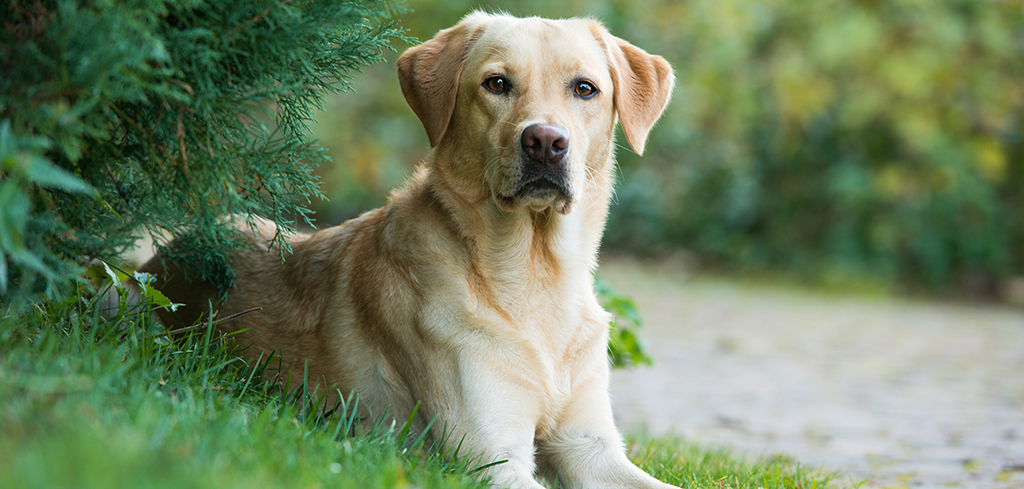
1) Labrador Retriever
The Labrador Retriever is a natural-born water dog, and for good reason. They have a dense, water-resistant coat, webbed paws for swimming, and an incredible work ethic. Labs are known for their intelligence, making them easy to train, and their gentle nature makes them great companions both in and out of the field.
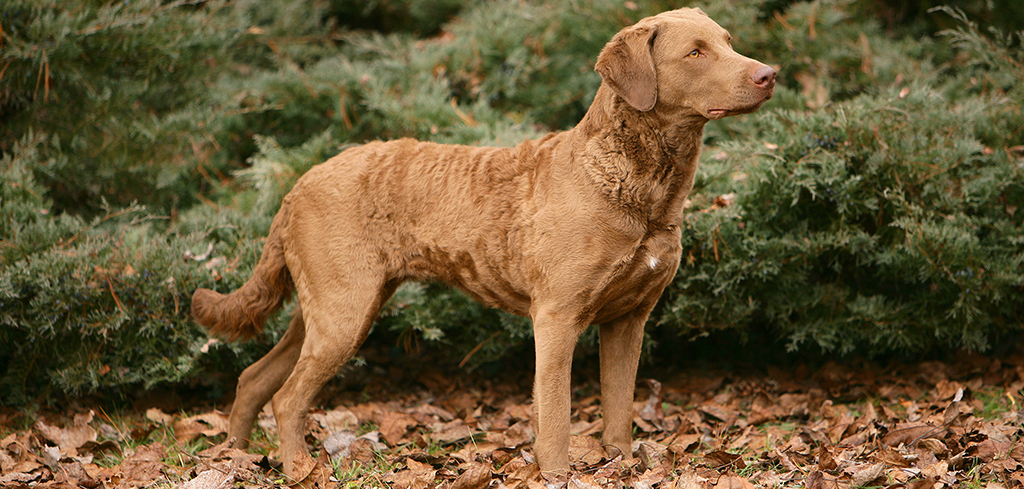
2) Chesapeake Bay Retriever
Bred to handle cold and rough waters, the Chesapeake Bay Retriever is known for its stamina and toughness. With a thick, oily coat that repels water and a strong desire to work, “Chessies” are perfect for retrieving ducks in challenging environments. They’re also fiercely loyal and protective of their family.
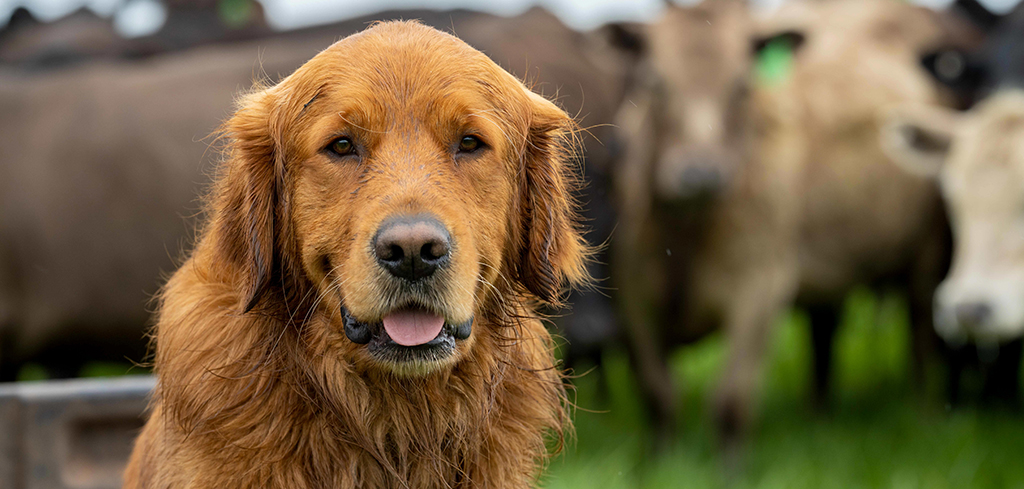
3) Golden Retriever
Golden Retrievers are beloved for their friendly disposition, but don’t let their sweet nature fool you – they’re fantastic hunting dogs. Their natural retrieving instincts, combined with their intelligence and trainability, make them excellent at waterfowl hunting. Plus, their double coat keeps them warm during cold water retrieves.
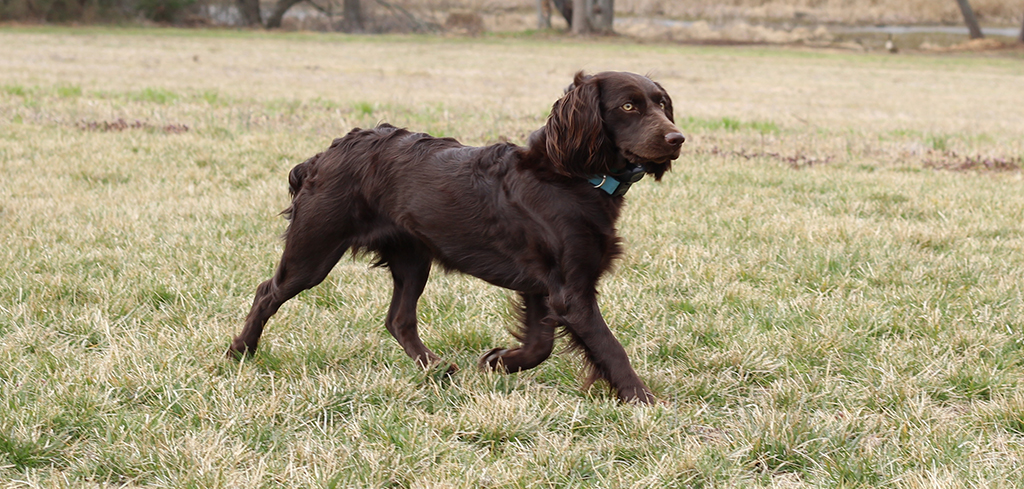
4) Boykin Spaniel
The state dog of South Carolina, the Boykin Spaniel is a versatile hunter with a knack for retrieving both upland game and waterfowl. Small but mighty, Boykins are energetic, eager to please, and love working in the water. Their compact size makes them ideal for hunters who want a dog that’s easy to transport.
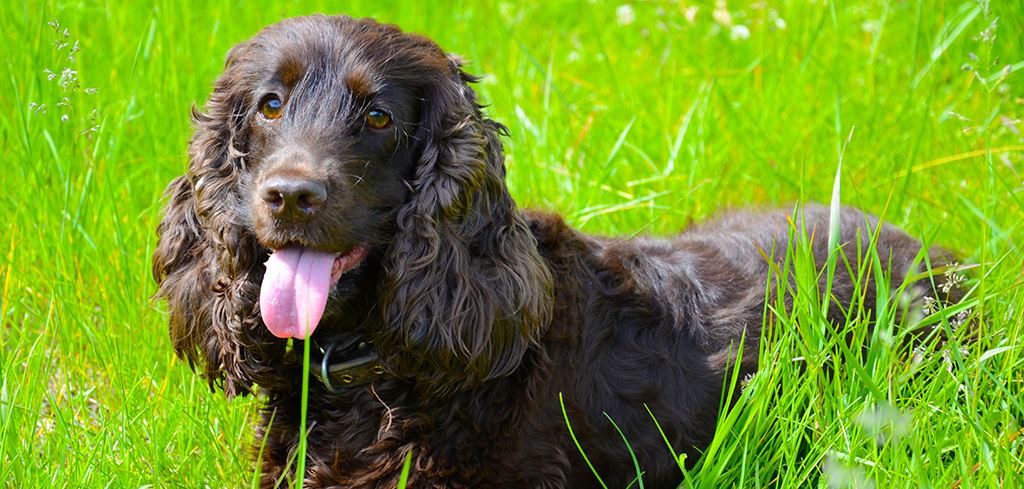
5) Irish Water Spaniel
As one of the oldest spaniel breeds, the Irish Water Spaniel stands out with its curly, water-resistant coat. These dogs are known for their stamina, making them perfect for long hunts in wet conditions. With a playful and inquisitive nature, they bring both skill and charm to any hunting trip. Plus, they’re known to be incredibly affectionate, making them great family pets.
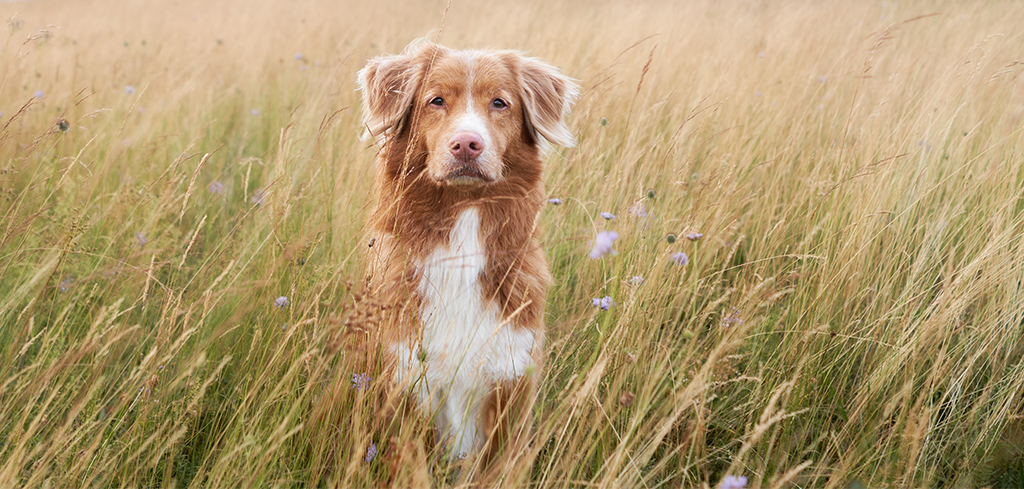
6) Nova Scotia Duck Tolling Retriever
The Nova Scotia Duck Tolling Retriever is an expert at “tolling,” or luring ducks closer to the hunter’s blind. Their playful movements attract the curiosity of waterfowl, and once the ducks are in range, these retrievers spring into action. Their small size and agility make them ideal for navigating marshy environments.
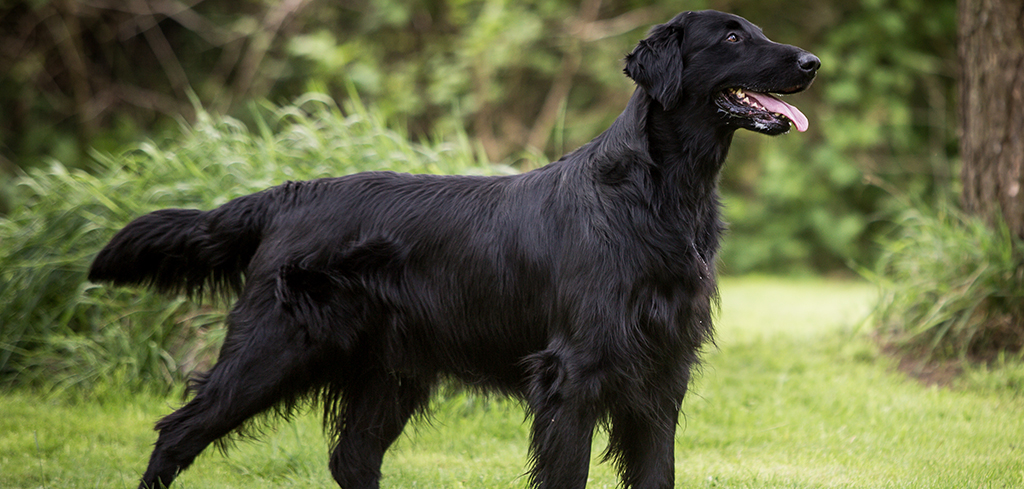
7) Flat-Coated Retriever
Known for their sleek, shiny coats, Flat-Coated Retrievers are enthusiastic hunters with a love for retrieving. These dogs are known for their boundless energy and upbeat personalities, making them excellent companions in the field and at home. Their strong swimming skills and webbed paws help them excel in retrieving waterfowl.
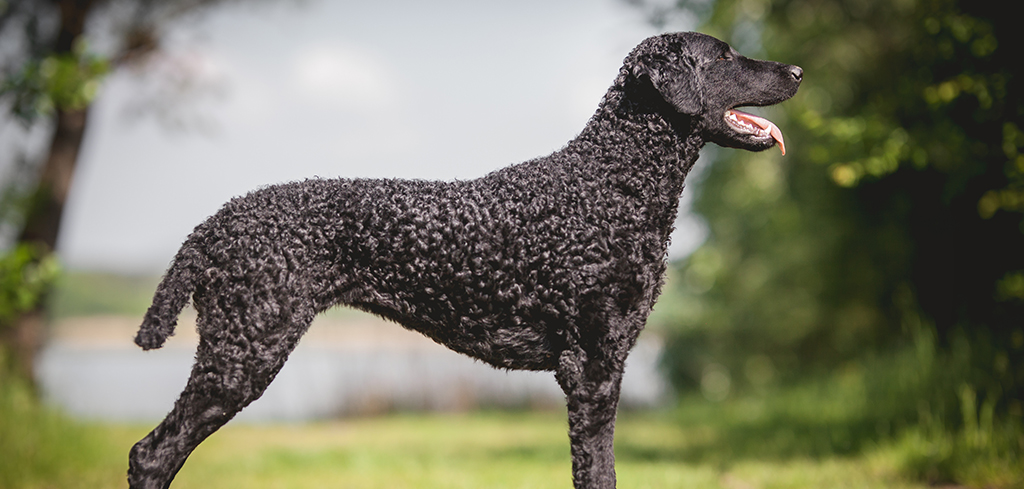
8) Curly-Coated Retriever
With a distinctive curly coat, the Curly-Coated Retriever is built for retrieving in harsh conditions. Their thick, waterproof coat protects them from the cold, while their athletic build and endurance make them ideal for long hunting days. Curly-Coats are known for being independent thinkers, which can make training a bit of a challenge, but they’re highly capable once trained.
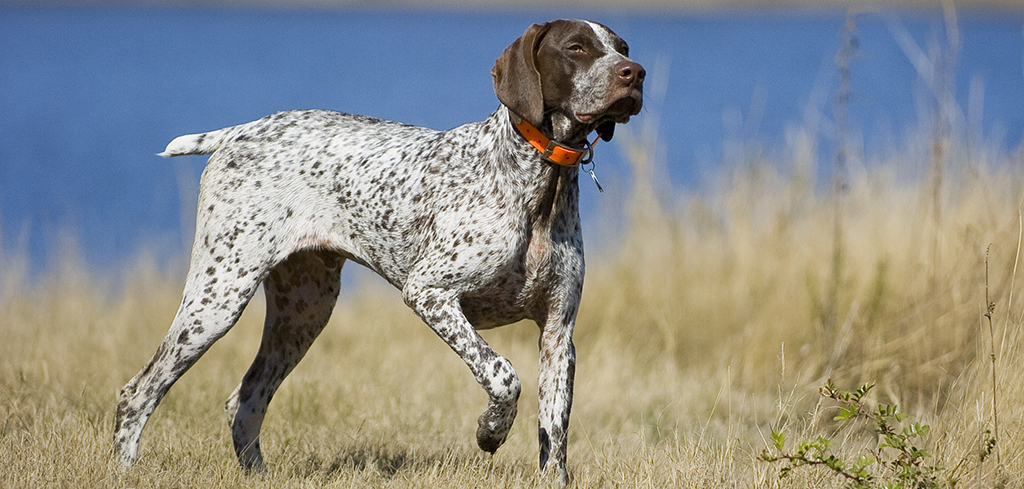
9) German Shorthaired Pointer
Although not a traditional retriever, the German Shorthaired Pointer is a versatile hunting dog that excels in both upland bird hunting and retrieving waterfowl. With their strong sense of smell, these dogs are great at tracking downed birds, and their short coat dries quickly after a swim. German Shorthaired Pointers are energetic dogs that need lots of exercise and stimulation. They’re usually easy to train and eager to please.
Key Traits to Look for in a Duck Hunting Dog
When choosing a duck hunting dog, there are several key traits to consider:
- Swimming ability. Your dog needs to be comfortable in water, especially cold water. Breeds with webbed paws and water-resistant coats are ideal.
- Retrieving instinct. Look for breeds that have a natural desire to retrieve, as this will make training easier.
- Endurance. Waterfowl hunting can be physically demanding, so you’ll want a dog with plenty of stamina for long days in the field.
- Trainability. A good duck dog should be easy to train and responsive to commands, especially in high-stress environments.
Training Your Duck Hunting Dog
Proper training is essential to ensure your duck hunting dog performs well in the field. The bond you build during training not only helps your dog develop essential skills but also makes your hunting trips more enjoyable for both of you. Here are some quick tips to help you get started:
Basic Training Tips
- Start with obedience training. Commands like “Sit,” “Stay,” and “Come” are vital for keeping your dog under control. Use positive reinforcement, like treats and praise, to help your dog learn quickly. A well-trained dog will look to you for guidance, making them safer in the field.
- Get comfortable with water early. Introduce your pup to water in shallow, calm areas. Use toys and make it fun to build their confidence. A positive attitude toward water is key to developing a skilled retriever.
- Practice retrieving in a controlled environment. Start with simple retrieves in your yard or a park. Use soft retrieving bumpers, and make sure your dog brings the object directly back to you. Practice in different environments to build consistency.
- Introduce gunfire gradually. Start by letting your dog hear distant gunfire while playing. Gradually decrease the distance until they’re comfortable. Associating gunfire with fun helps them become confident in the field.
Advanced Training
Once your dog has mastered the basics, it’s time to move on to more advanced training. These skills will turn your pup into a well-rounded duck hunting companion:
- Handling blinds and learning whistle commands. Teach your dog to follow directional cues using hand signals or a whistle. Start with short distances and increase complexity as they get more comfortable.
- Use whistle commands for precision. Whistle training helps control your dog at long distances. Start with simple whistle commands that match verbal ones, then combine them with hand signals for more advanced tasks.
- Train for distractions. Practice retrieving with added distractions, like other dogs or toys, to help your dog stay focused. Train in different environments to prepare them for real hunting scenarios.
- Mastering steady retrieves. Teach your dog to wait for the “fetch” command. This helps them learn patience and prevents them from jumping too soon, ensuring a more controlled hunt.
- Keep training sessions regular and fun. Practice several times a week, but keep sessions short – about 10 to 15 minutes. Include play breaks and celebrate small wins to keep your dog motivated and eager to learn.
Key Takeaways
- Selecting the right breed is essential for a successful duck hunting experience. Labrador Retrievers, Chesapeake Bay Retrievers, and other breeds with strong retrieving instincts are top choices.
- Versatile breeds like Boykin Spaniels and Nova Scotia Duck Tolling Retrievers excel in both waterfowl and upland game hunting.
- Traits like swimming ability, endurance, and trainability are key factors to consider when choosing a duck hunting dog.
- Training consistency is essential. Start with obedience training, progress to advanced commands, and maintain a regular training routine.
- Introduce water and gunfire gradually to build confidence and reduce fear in the field.
- Advanced training techniques such as whistle commands, handling blinds, and training for distractions can make your dog more effective during hunts.
Is a Duck Hunting Dog Right for You?
Choosing the right duck hunting dog means finding a loyal partner that thrives in the water, excels at retrieving, and can handle the physical demands of hunting. Whether you opt for a Labrador Retriever or a smaller breed like the Boykin Spaniel, the bond you’ll form with your duck dog will make every hunting trip more rewarding.
A well-trained hunting dog isn’t just a skilled retriever – they’re also a loyal companion for all of life’s adventures. And remember, it’s vital to feed your pup a high-energy diet, like SPORTMiX, to keep them in peak condition and ready for every challenge.

